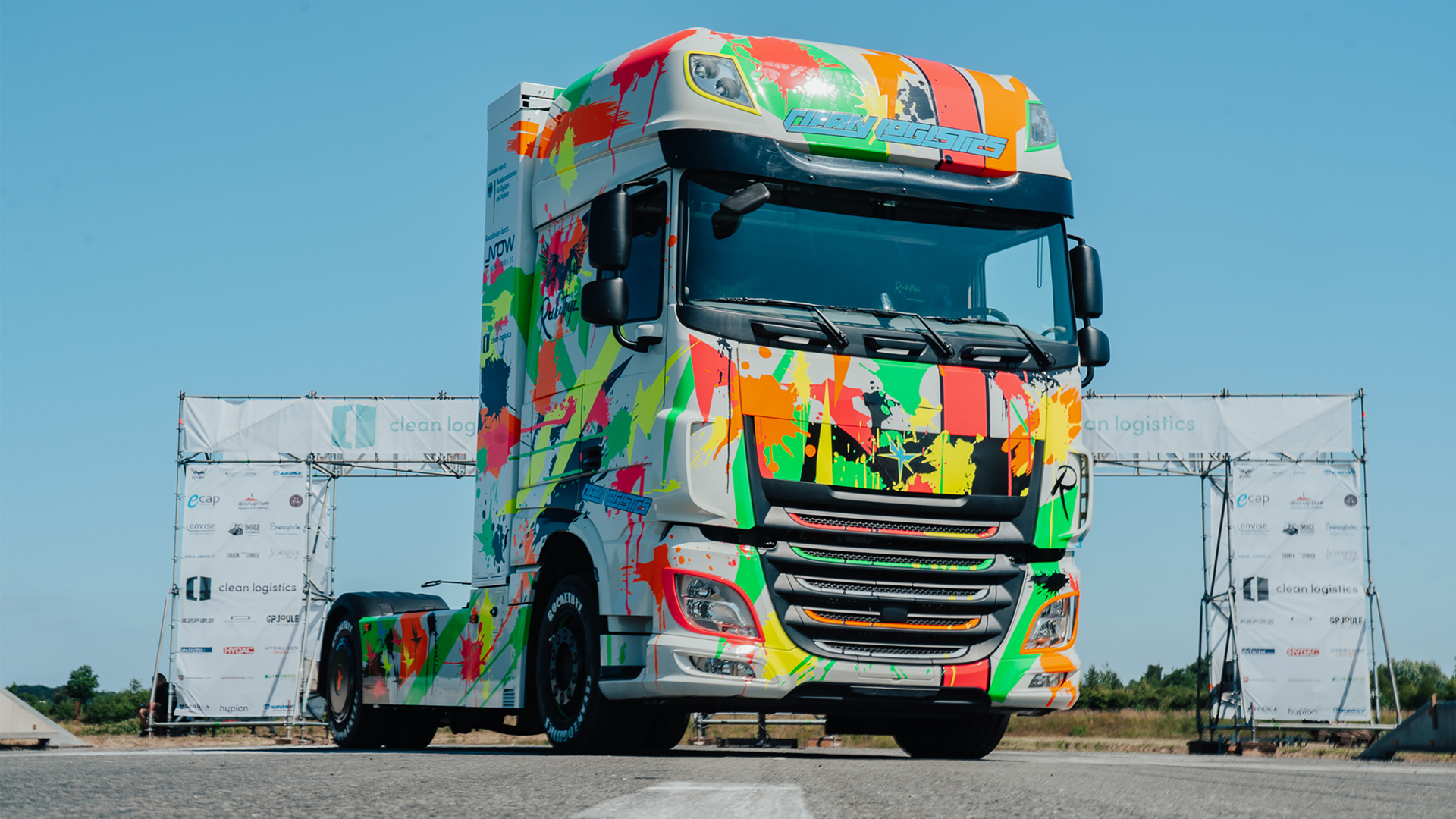MSC Germany focuses on Sustainable Supply Chains
Decarbonisation is one of the shipping industry’s greatest challenges.

Clean Logistics’ hydrogen truck ‘fyuriant’ seems a natural for Hamburg’s port industry. “Anybody moving around in the Elbe city’s wider local traffic area can certainly switch to our solution,” says Dirk Graszt, CEO of the Hamburg-based company that has specialized in converting diesel trucks into hydrogen- powered vehicles. For container transport, especially, payload is the main factor, which purely electric trucks cannot accommodate on account of the size and weight of their batteries.
Clean Logistics initially analysed the market. The company discovered that the highest numbers of registrations in recent years had been for DAF XF 106 and Mercedes Actros MP4 tractor-trailers. “These are the vehicles that we mainly take for conversion,” explains Graszt. The flow of enquiries from fleet operators for the zero-emission truck is already in the high four-figure range. The company aims to have converted around 100 vehicles during next year, in 2024 the total should rise to 500. Contracts have already been signed with some Hamburg-based customers. The whole process is supremely sustainable. “To reequip a vehicle from the second-hand market is naturally far more environment-friendly than building a new one,” stresses Graszt. Since not all customers wish for a rebuild, under its partnership with GP Joule, in future Clean Logistics will also be building new hydrogen- powered electric trucks. Delivery of the first 40 is due in autumn 2023. In view of current delivery problems, Clean Logistics has already secured batches of the essential elements. “We have firm, reliable suppliers and have the necessary parts available to be able to construct the vehicles,” he explains.
The company operates with customary 350-bar hydrogen tanking. The tanks hold 43 kilograms of hydrogen. Following transformation, this suffices for a distance of about 500 kilometres, or for a truck driver’s shift. The truck can be refuelled at stationary or mobile hydrogen filling stations. The necessary infrastructure is currently being built, with support from GP Joule, Clean Logistics’ new partner. The company develops, builds and operates hydrogen filling stations to order from local councils, industrial estate developers and companies generally. These serve trucks, buses, light commercial vehicles and cars. Conversions require the following: Clean Logistics removes the drive train, engine and back axle from vehicles, leaving the front axle, frame and cabin.
The hydrogen tanks are inserted, along with a fuel cell, an 80 kilowatt-hour battery system and a drive axle with internally mounted wheel hub motors that facilitate propulsion. A vehicle converted in this way generally has a life cycle of at least ten years. Hitherto the conversion has lasted about twelve weeks, but with more experience the refit should in future take no more than around four weeks.
"The conversion of a
vehicle is
cheaper than
a new construction“
According to Graszt, the incentive to switch to the hydrogen truck is also monetary. Federal government has launched KsNI, a programme for subsidizing climate-considerate commercial vehicles and infrastructure, and is currently refunding 80 percent of the difference in acquisition costs between hydrogens and diesel trucks. So BAG – the Federal Office for Goods Traffic – is subsidizing the 400,000-euro difference to the tune of 320,000 euros. According to Graszt, investing in the generally costly truck definitely pays, with its working life being increased by ten years. A further essential point is that the new form of propulsion shows virtually no wear Clean Logistics produces the trucks in Lower Saxony at Winsen/Luhe in the Hamburg Metropolitan Region. A new building covering 10,000 square metres is under construction. The CEO is confident that “With all that we intend doing, however, that size will not be adequate.” The search is therefore on for further production space.Clean Logistics produces the trucks in Lower Saxony at Winsen/Luhe in the Hamburg Metropolitan Region. A new building covering 10,000 square metres is under construction. The CEO is confident that “With all that we intend doing, however, that size will not be adequate.” The search is therefore on for further production space.